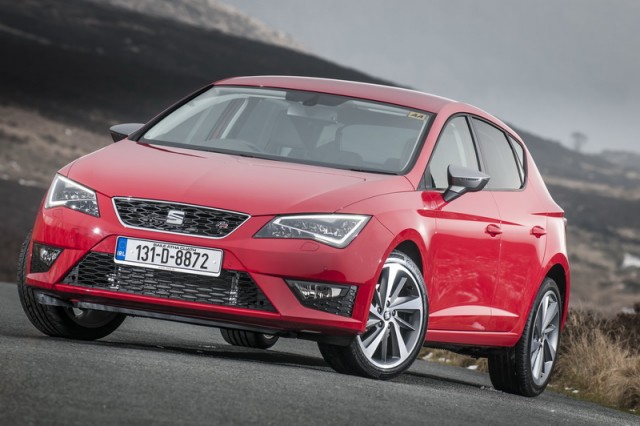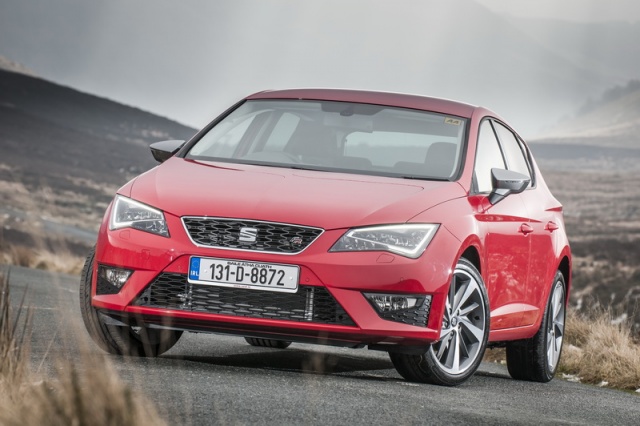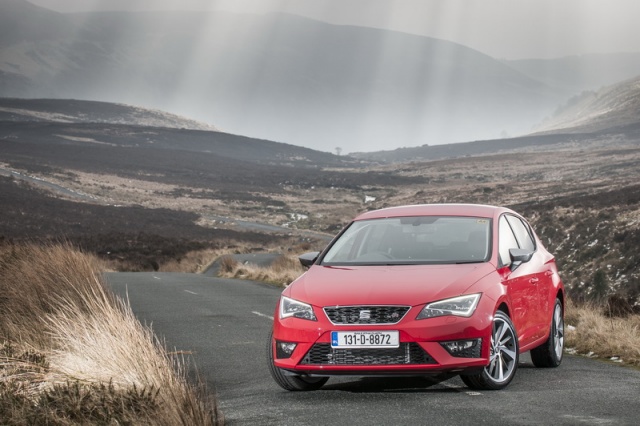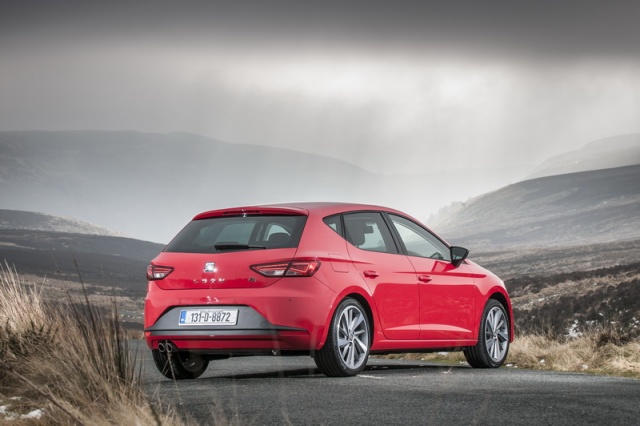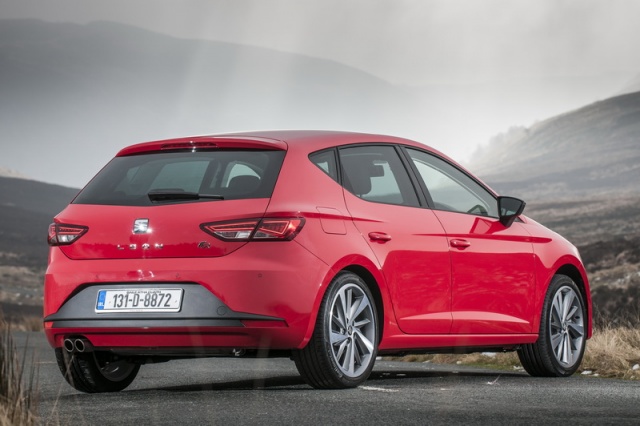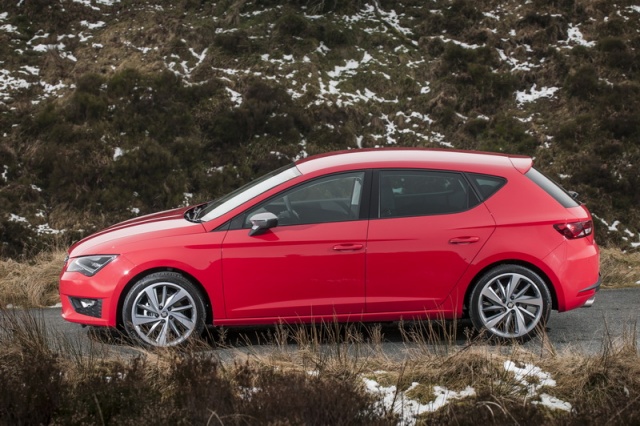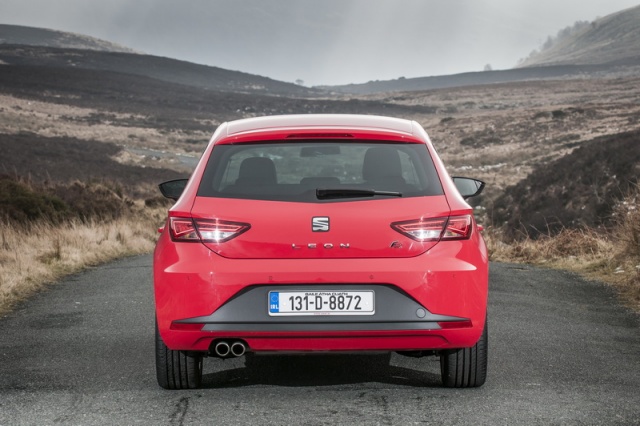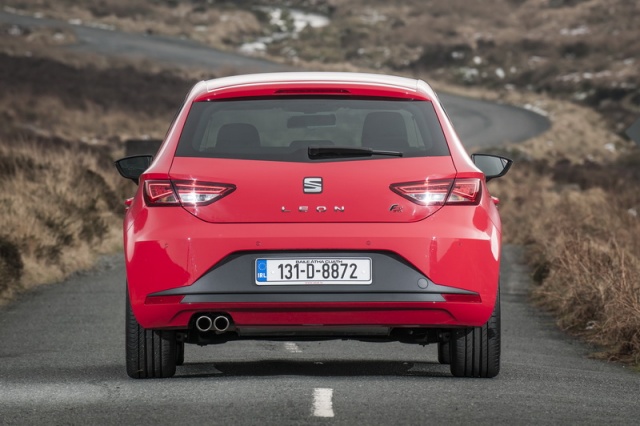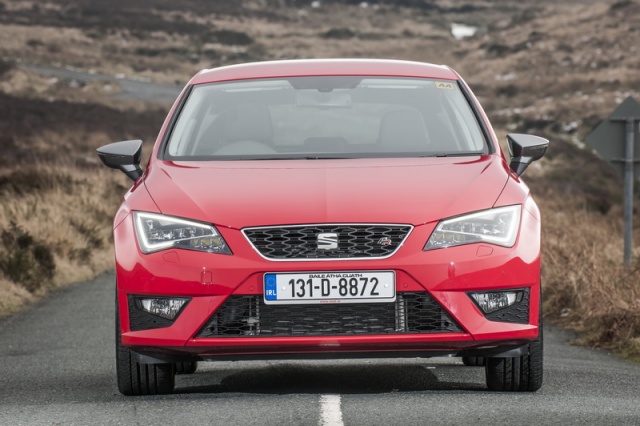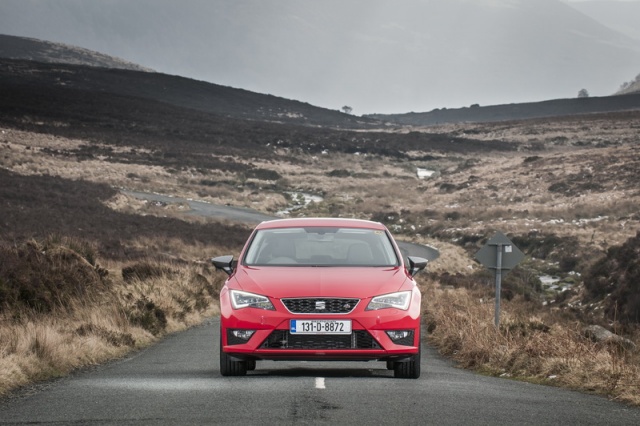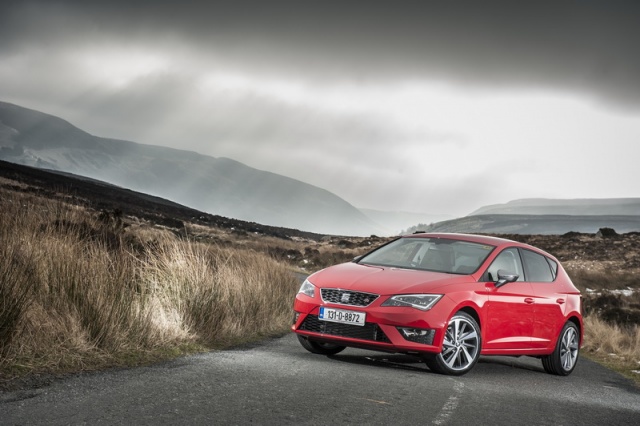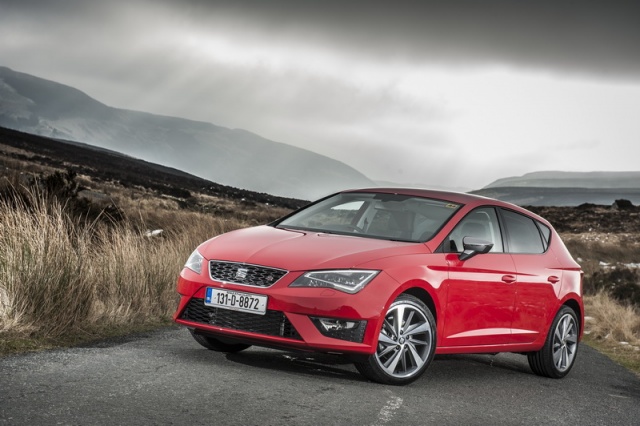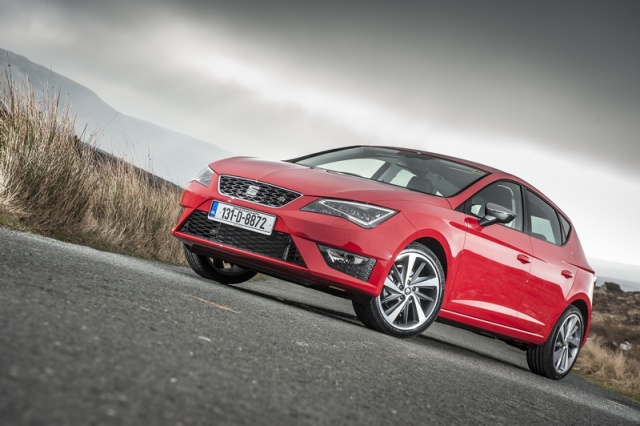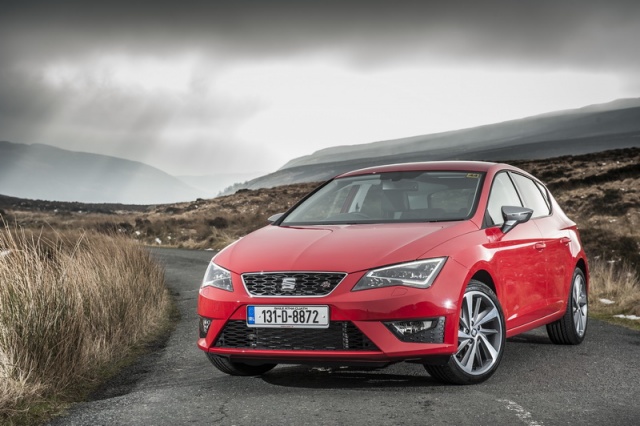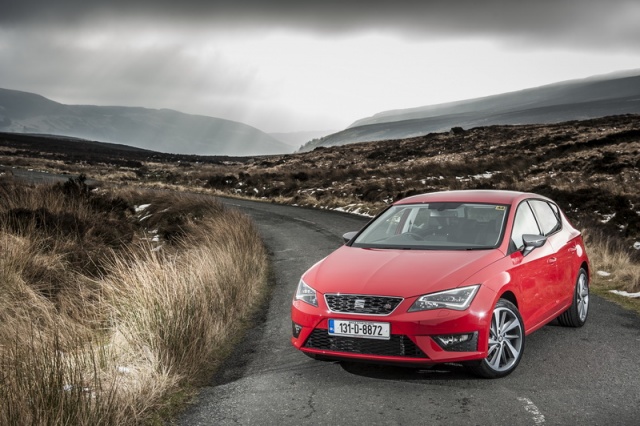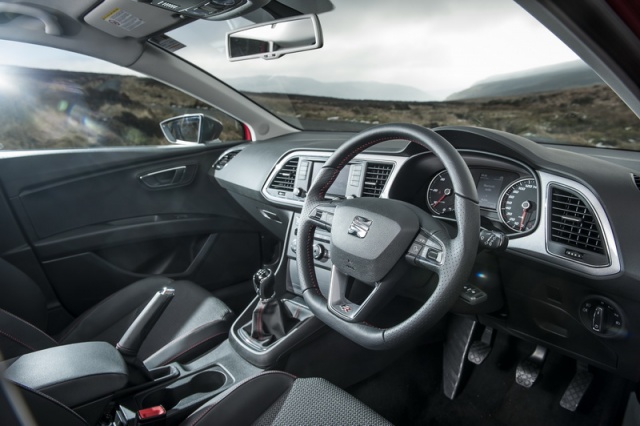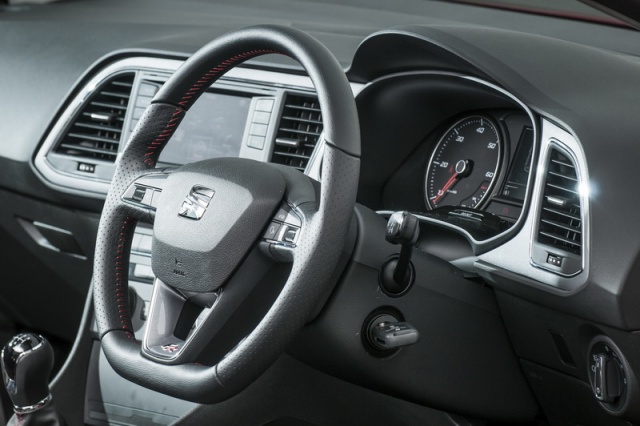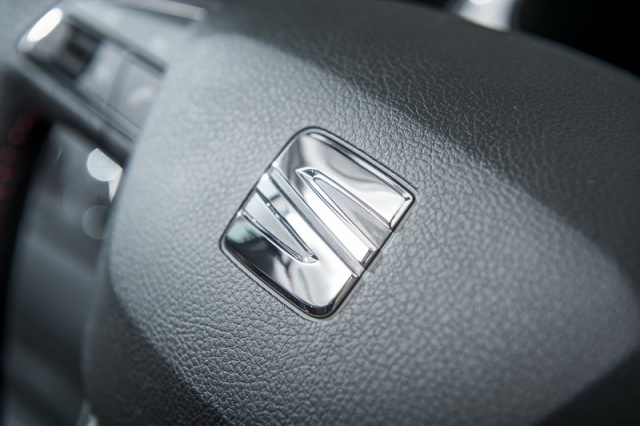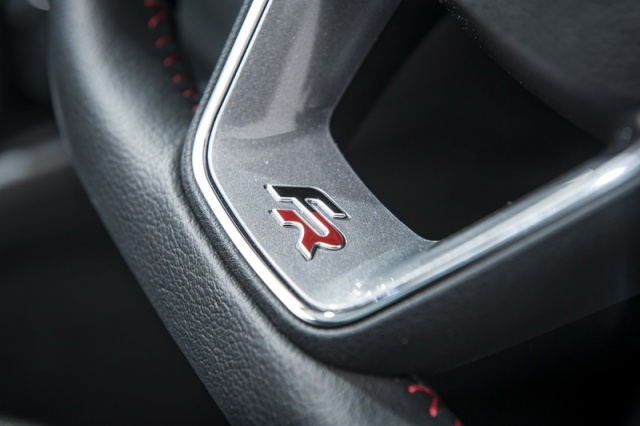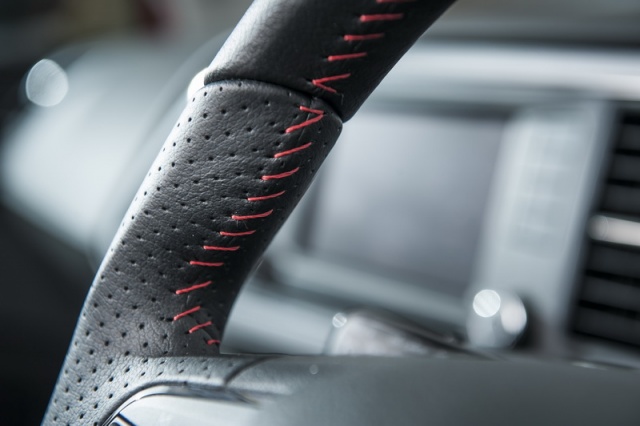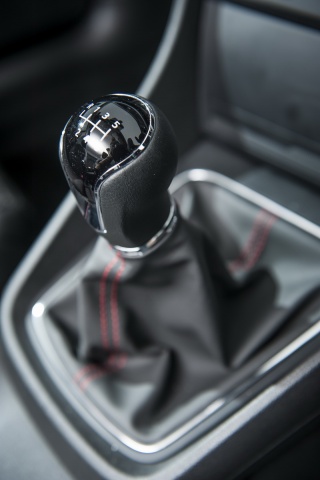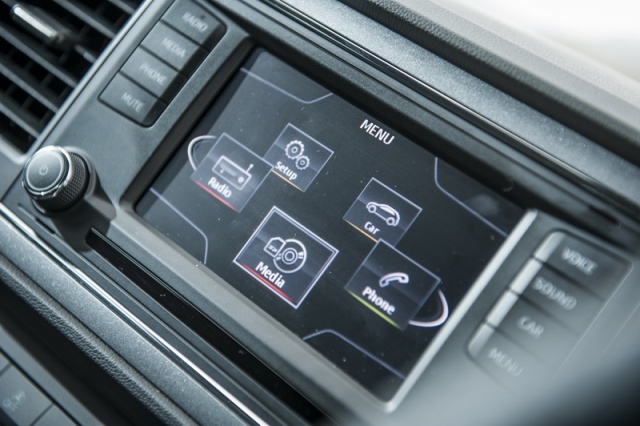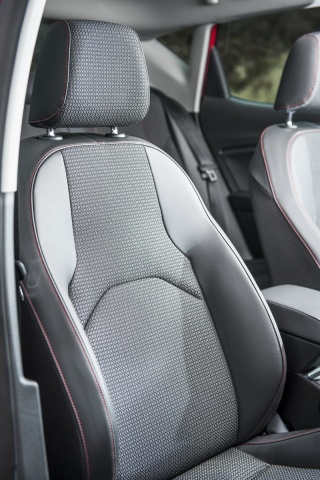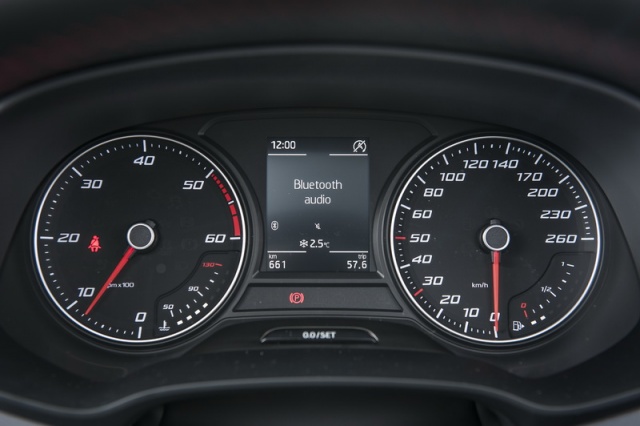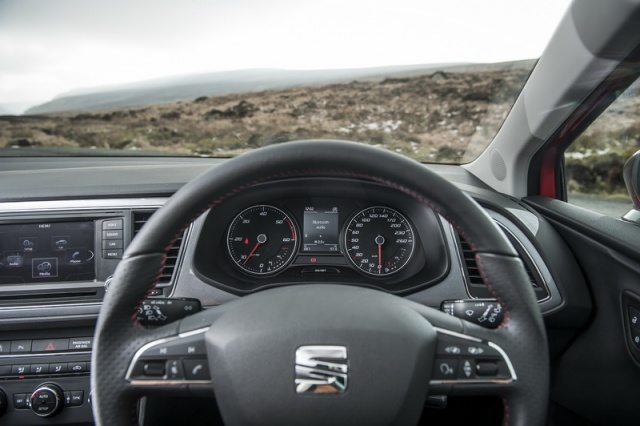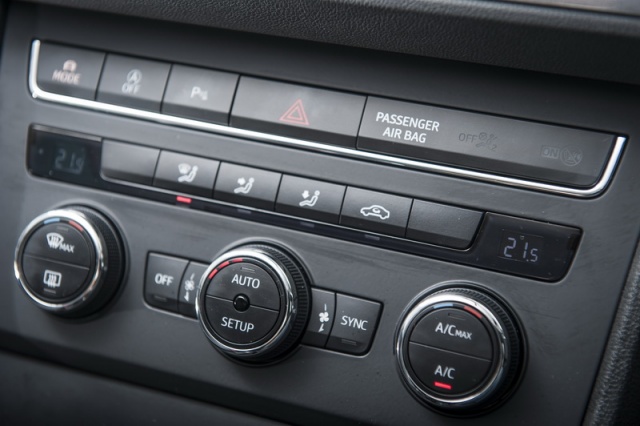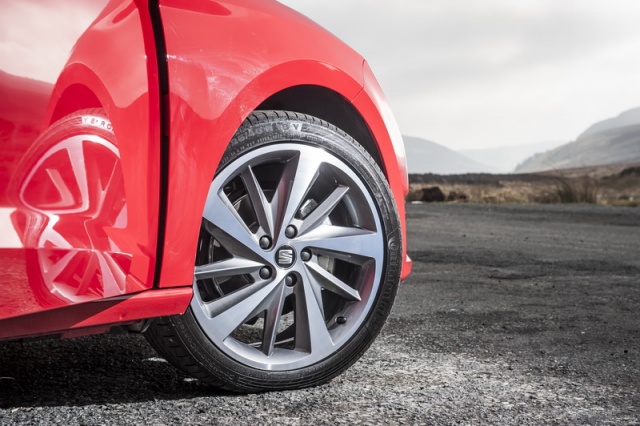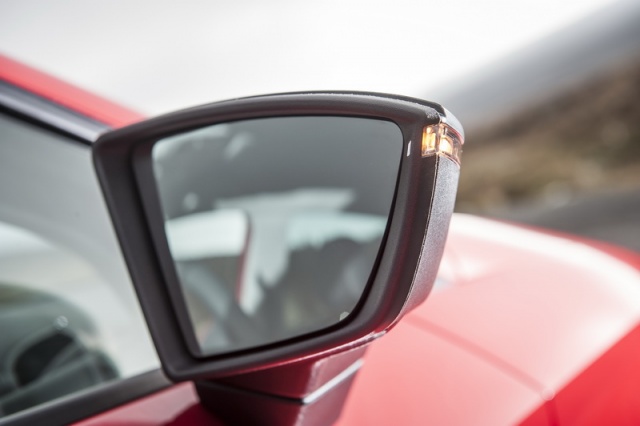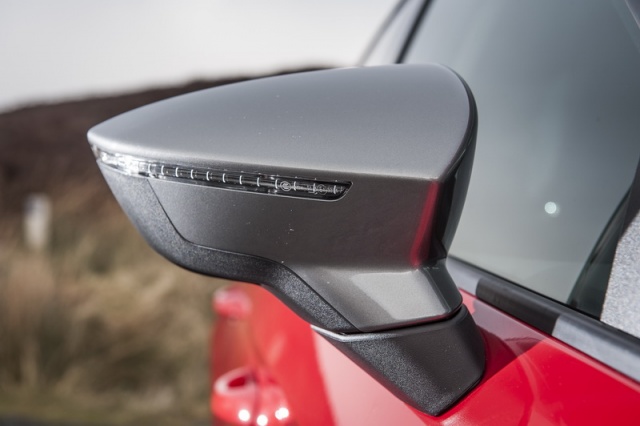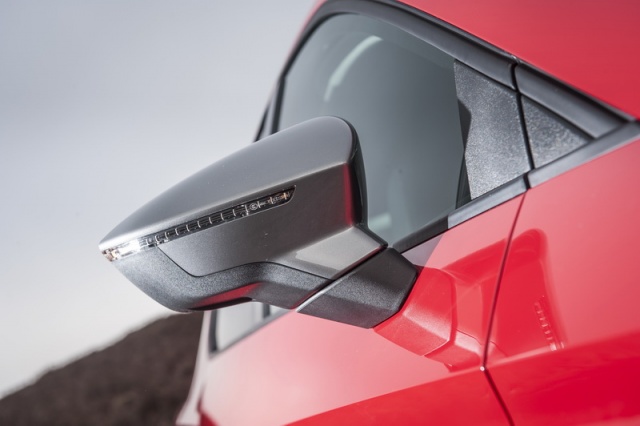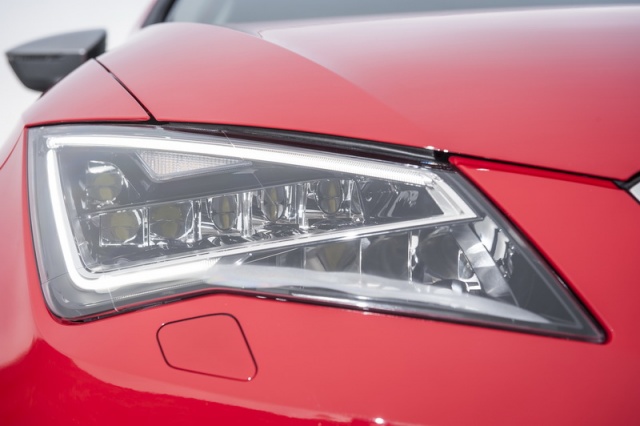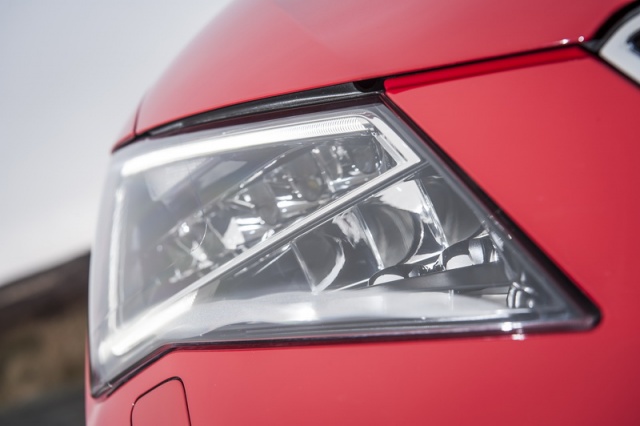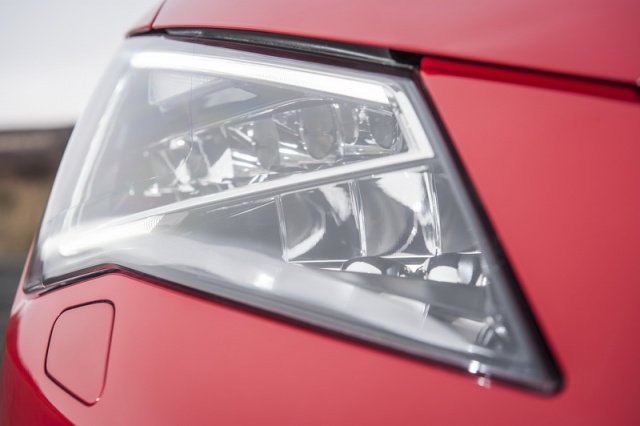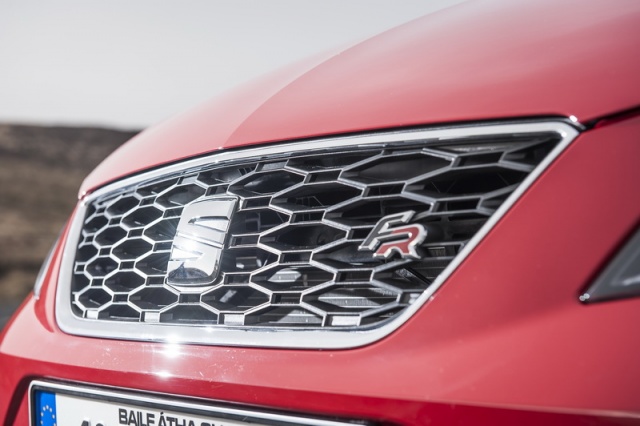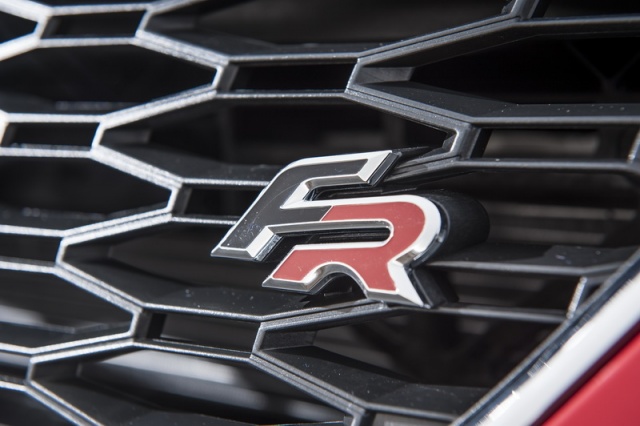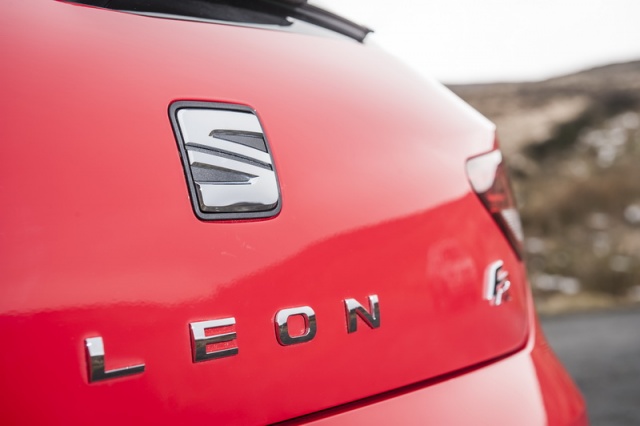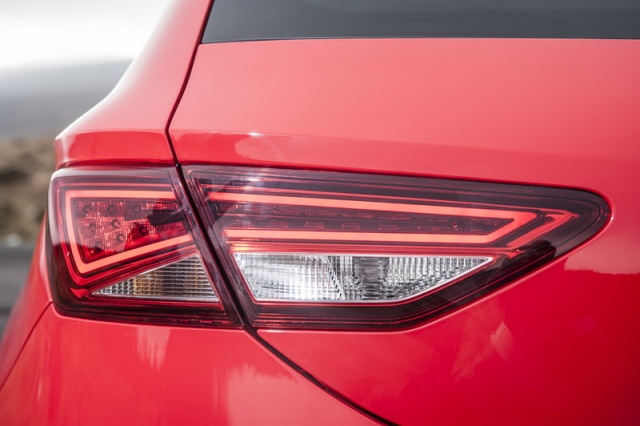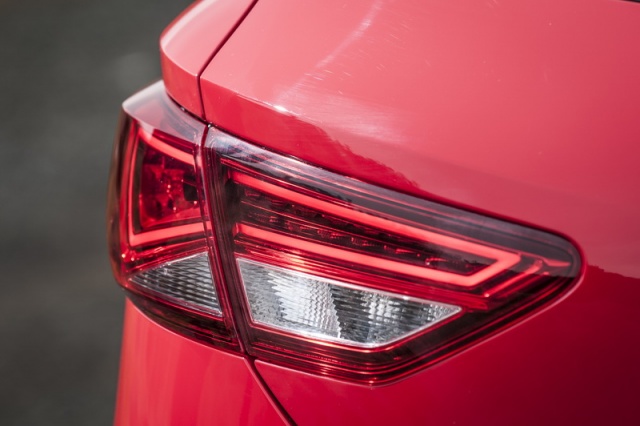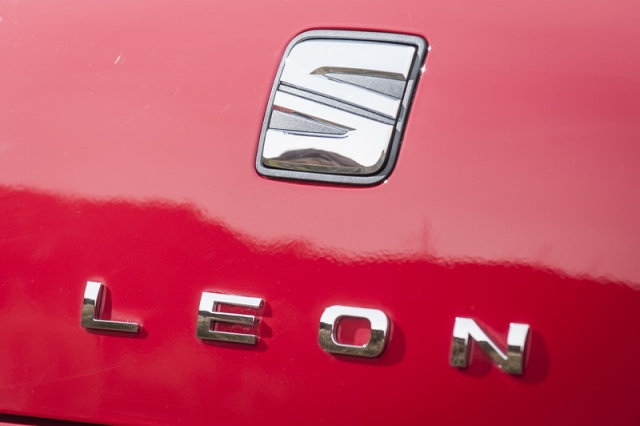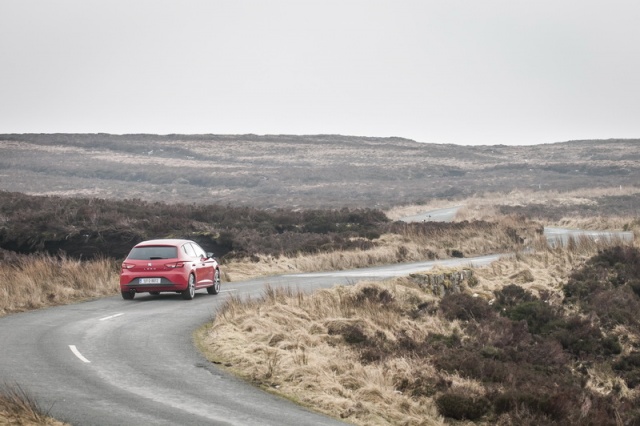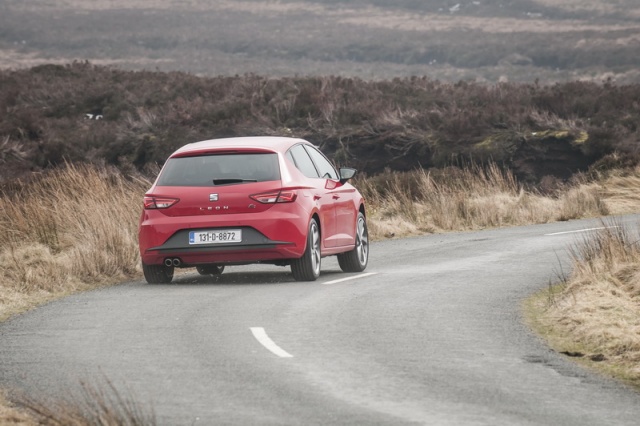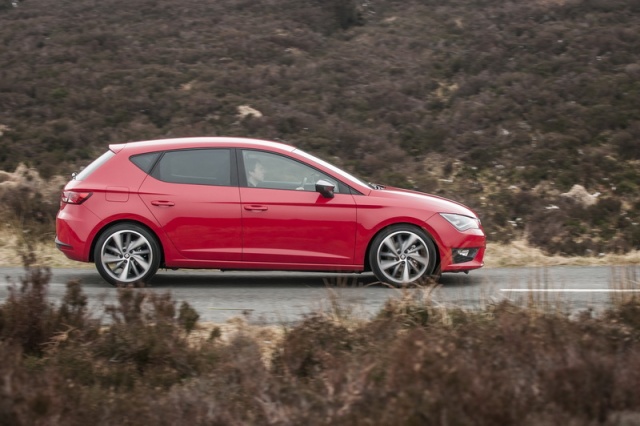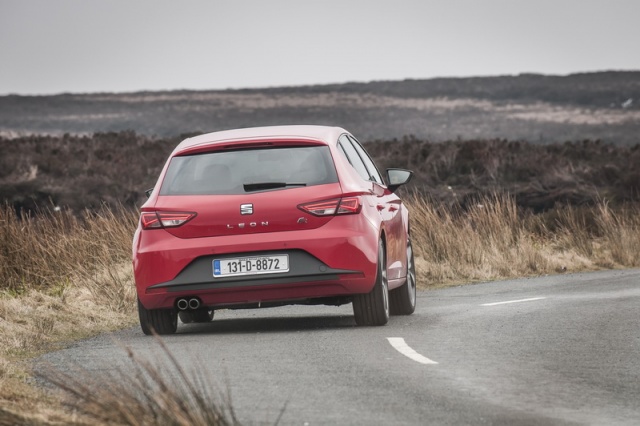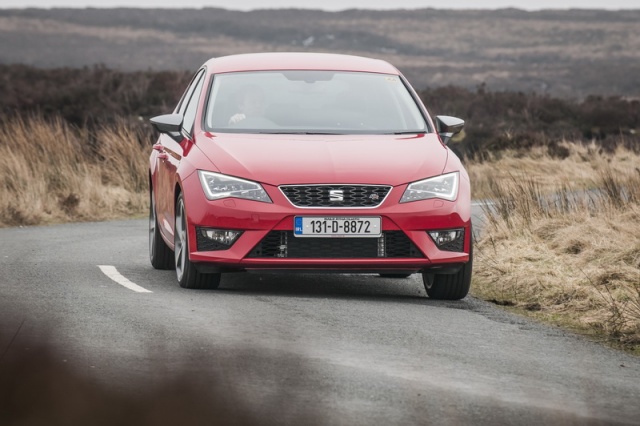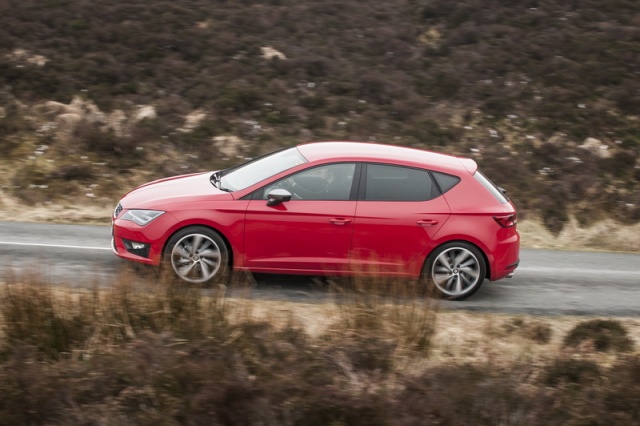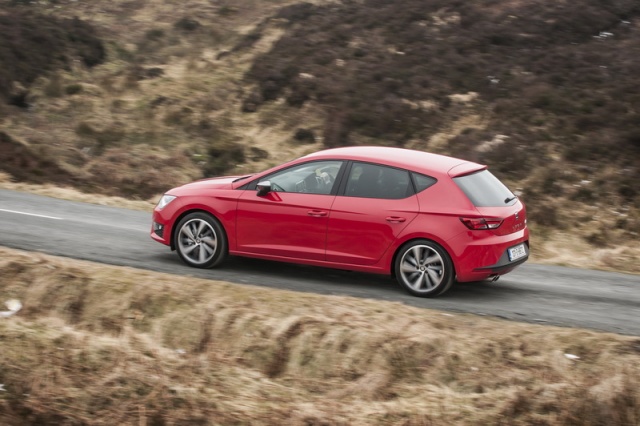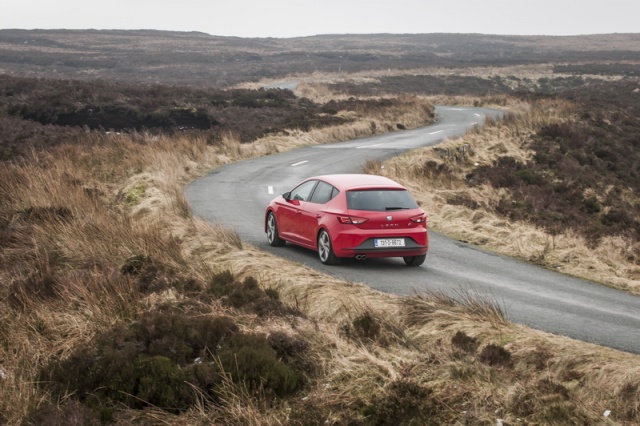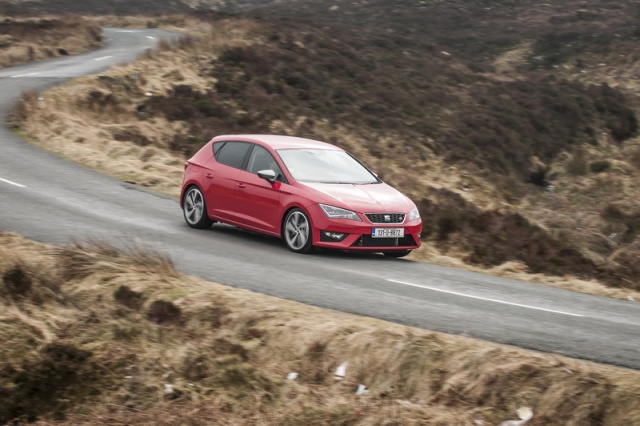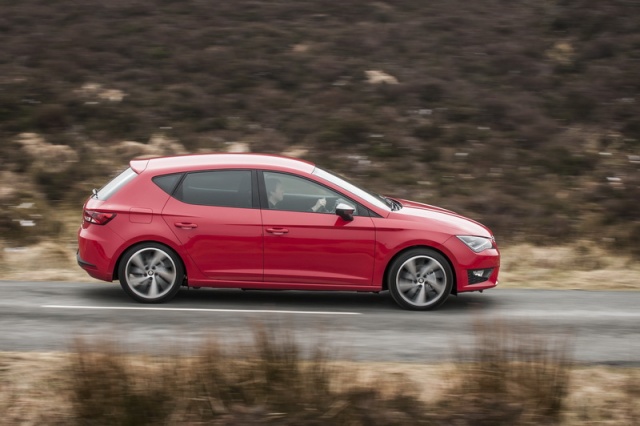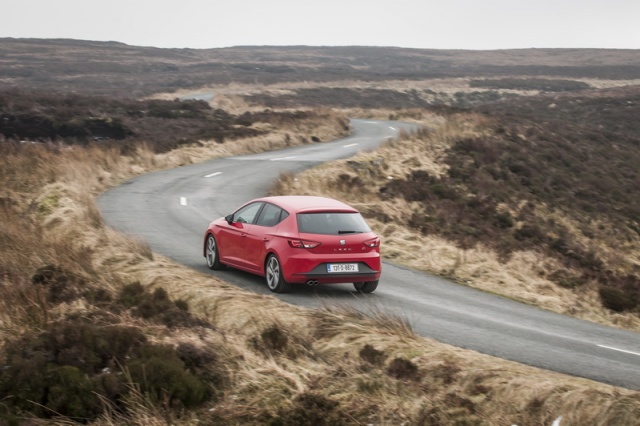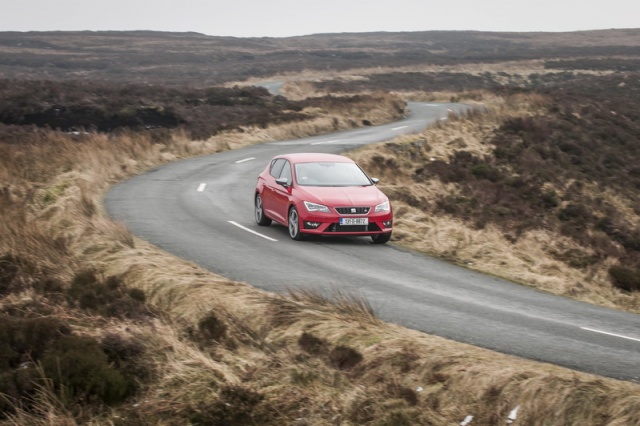Good: handsome, excellent chassis balance and steering, practical, well-priced.
Not so good: touch too much road noise, cabin a little plain, lacks cachet of the Golf.
We've been hearing for so many years now that SEAT is a sporty, passionate brand. It was always supposed to be a hard-charging, red-painted, hot-blooded one, sitting next to the cool, understated class of Volkswagen and the simple, practical nature of Skoda in the Volkswagen Group empire. It never quite worked that way though. SEAT's core market has always been its home market, and in Spain what most people want is an affordable, reliable family car. Hot hatches are a northern European obsession. So we ended up with a legion of SEATs that were spacious, dependable and well-priced. I should know; I've owned one and my dad is on his third. Never a day's trouble from any of them. But sporty? Sorry, no, not in any realistic sense anyway.
Oh sure, there were the hot-as-a-Scotch-Bonnet Cupra models, especially the 240hp Leon Cupra, which was a blast. But these were rarities, and aside from being cheaper than their direct Volkswagen competitors, they didn't really offer very much else.
Now though, we think SEAT has really hit the nail on the head. Not with its whole range, which, with the standard models of the Ibiza, Alhambra and - especially - the Toledo is just too un-sporty by far. Not even with the entire Leon range, which, although generally very impressive, is still just a little too vanilla at the bottom rung. No, with this FR version of the Leon, with the 2.0-litre 150hp diesel engine under the bonnet, we think at last SEAT has found the sweet spot between affordability, practicality and sportiness.
The standard Leon we already know and quite like. It looks good, is spacious and well-made, economical and well-priced and can at least peek out around the edges of the shadow cast by the mighty Volkswagen Golf - to which it is directly mechanically related. In fact, with these new generation models with their MQB parts-bin underpinnings, I'd say that, at last, the Leon is starting to feel distinctly different to the Golf. It's only in small degrees, but it's there. The steering in particular is sweeter and feels more direct than the slightly mute helm of the Mk VII Golf.
That's an effect amplified in the FR version. The steering now feels properly meaty, especially if you keep the Sport setting of the five-way adjustable ‘SEAT Drive Profile' engaged. It's one of those cars that, as soon as you sit in, turn the steering wheel and drive just a few yards, feel right. That's a trick that Ford especially has become adept at pulling off in recent years, and SEAT has clearly learned from the master. There's a firmly-damped feeling to everything, from the suspension to the gearshift, that makes the FR feel slick, smooth and expensive.
Ultimately, it's not as sporty to drive as it could be, and you do get the feeling that SEAT has been ordered from on high to hold back the last nth degree of handling prowess and refinement that could have been engineered in. There is a touch too much road noise, while understeer sets in a little too early when you're pressing on. Still, the FR is remarkably good fun, and remarkably composed with it. The rear suspension is the same simple torsion bar setup of lesser Leons (not the more expensive multi-link arrangement of the 184hp version), but still SEAT has found smoothness and agility from a pretty basic design.
At €27,325, it seems very well priced, even against in-house competition such as the Golf and the Skoda Octavia. With that comes gorgeous sports seats with Alcantara inserts that do a great job of lifting the ambience of what is otherwise quite a plain and simple cabin. There's a touch-screen infotainment system too, with Bluetooth connection for both phone and media player, while outside you get a chunky body kit and gorgeous alloy wheels in a dark-grey finish.
It'll be cheap to run as well. Emissions are staggeringly low for a car with a punchy 2.0-litre engine so you'll have to fork out just €190 a year in road tax. SEAT claims 4.3 litres per 100km average fuel consumption, which is the usual bunkum based on lab conditions, but we managed to eke out decent high-fives, low-sixes on average, so you should be able to get close to the 50mpg mark in daily driving.
Yes, the Leon will continue to be overshadowed by both the Golf and the Octavia. Yes, the FR is priced still a touch too high to reach a mass market, meaning that most of those buying a Leon will still go for the much less sporty 1.6 TDI version. But I do think that, with its combination of slick chassis, good looks, lengthy equipment list, punchy engine and low running costs, the Leon FR is the single best car that SEAT makes right now, and at last starts to make good on some of those 'Spanish Alfa Romeo' promises.
Alternatives
Ford Focus Zetec-S 1.6 TDCi: even better chassis than the Leon's but its chunky body kit is writing cheques the weedy 95hp engine can't cash.
Volkswagen Golf 2.0 TDI Highline: more expensive and more desirable, but not quite as much fun.
Renault Mégane Coupé 1.5 dCi GT Line: good looking and very affordable but engine not up to Leon's.

